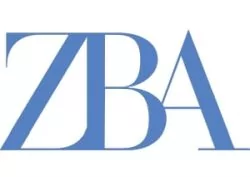Introduction
The Supreme Court in Shriram EPC Limited v. Rioglass Solar SA, has unwittingly reopened the debate whether contravention of Indian exchange control regulations i.e., the Foreign Exchange Management Act ("FEMA"), constitutes a breach of 'public policy', entitling a court to refuse enforcement of a foreign arbitral award in India.
The observations by the Supreme Court now casts doubt over the much-applauded judgment of the Delhi High Court in Cruz City 1 Mauritius Holdings v Unitech Limited1, which refused to decline enforcement of a foreign award on the ground of an alleged breach of Indian exchange control provisions viz, FEMA. The Delhi High Court whilst enforcing a foreign award ruled that breach of Indian exchange controls would not offend public policy and would not constitute a valid ground to challenge recognition and enforcement in India.
'Public policy' has been an extremely unruly horse in India. India was historically regarded as an inhospitable jurisdiction for enforcement of foreign awards, precisely due to the easy recourse by courts to the 'public policy' exception. The judgements delivered by the Delhi High Court in Cruz City and the Bombay High Court in POL India Projects Limited and Ors. v Aurelia Reederei Eugen Friederich GmbH Schiffahrtsgesellschaft & Company KG and Ors.2, lent some comfort to foreign award holders by narrowly interpreting and applying the 'public policy' exception to alleged violations of Indian exchange control regulations.
The recent Supreme Court judgment by construing the 'public policy' exception in broad and perhaps over generous terms, has the potential to unnecessarily re-open the controversy on the scope of the 'public policy' exception in general and its application in particular to alleged violations of Indian exchange control regulations.
Factual Background
Arbitral proceedings between Shriram EPC Limited (“Shriram”) and Rio Glass Solar SA (“Rio Glass”) conducted in London under ICC Rules, culminated in an award against Shriram. Shriram sought annulment proceedings in the Madras High Court under provisions applicable to a domestic award. Sriram's challenge to the foreign award under Section 34 of the Arbitration and Conciliation Act, 1996 (“Act”) was dismissed by a ruling that its petition was not maintainable against a foreign award.
Rio Glass thereafter filed a petition under Section 47 of the Act to enforce the foreign award in the Madras High Court. The Single Judge of the Madras High Court allowed enforcement of the award. A subsequent appeal by Sriram against enforcement was dismissed by a Division Bench of the Madras High Court. Shriram then filed a Special Leave Petition before the Supreme Court.
The only ground urged by Shriram before the Supreme Court to deny enforcement was that the award holder had not paid stamp duty on the award when seeking enforcement in India. Shriram urged that the failure to stamp the foreign award offended 'public policy' entitling the court to refuse enforcement.
Rio Glass in response contended that the expression “award” in the Stamp Act applied to a domestic award and did not contemplate stamping of a foreign award. Stamping of a foreign award according to it was not a condition precedent to enforcement under Section 47 of the Act. Rio Glass in the alternative submitted that even if a foreign award was required to be stamped, enforcement of such an unstamped award would not offend the fundamental policy of Indian law and would not attract the 'public policy' exception.
Supreme Court Judgement
The Supreme Court whilst tracing the historical origins of the Stamp Act in India and its applicability to awards concluded that the expression ‘award' under the Stamp Act referred only to domestic awards and not foreign awards i.e. Geneva Convention or NYC awards. In the circumstances, the Supreme Court held that a foreign award was not liable to stamp duty and consequently an unstamped foreign award would be enforceable in India.
Whilst the Court decided in favour of enforcement, it proceeded to consider and reject the alternative submission advanced by Rio Glass, by observing that if a foreign award was liable to stamp duty, non-payment of such an impost would attract the 'public policy' exception to enforcement. The Court in support of this conclusion relied on certain observations of an earlier Supreme Court judgement viz, Renusagar Power Co. Ltd v General Electric Co3 (which dealt with the old Foreign Exchange Regulation Act, 1973 (FERA) now repealed), in which certain observations were made to the effect that any violation of Indian economic laws would be regarded as offensive to Indian public policy, entitling the court to refuse enforcement.
The Supreme Court in its reasoning found that the Stamp Act being a fiscal statute, was like FERA, legislation regulating the economy of India, which reflected the fundamental policy of Indian law- a breach of which would entitle the Court to decline enforcement.
Conclusion
The conclusion arrived at by the Supreme Court is clearly sound and indicates that frivolous or technical objections to enforcement will not be encouraged. However, the observations regarding the applicability of the public policy exception to a fiscal statute like the Stamp Act, were unnecessary, given that the Court need not have expressed its opinion on the alternative submissions made by the award holder. But more fundamentally, the court's remarks have the potential for mischief, as they are an over-broad and expansive interpretation of the 'public policy', exception.
The question whether extant exchange control regulations i.e. FEMA will now be construed as a fiscal statute will inevitably rear its head given that it was enacted to replace FERA. The Supreme Court judgement will provide fertile ground for arguments justifying non-enforcement of foreign awards due to alleged breaches of FEMA, leading to heightened risk and uncertainty to enforcement in India.
Footnotes
1 2017(3)ArbLR20(Delhi)
2 Arbitration Petition Nos. 76 and 12 of 2012, decided on: 08.04.2015
3 AIR1994SC860
The above is a generic analysis and should not be regarded as a substitute for specific advice based on the facts of a client's objectives and specific commercial agreements reached. Please do reach out to us at mail@zba.co.in for any queries.

